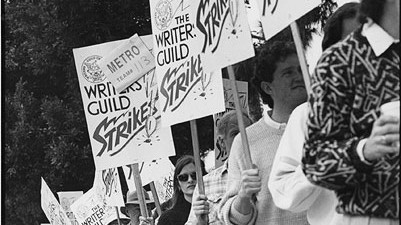Editor’s note: this article was written before the wide release ofOppenheimer.
“Stunned & Emotionally Recovering”
“Perfect”
“Fearsome”
“Impeccable”
“Spectacular”
These accolades for Oppenheimer, Christopher Nolan’s latest and perhaps most highly anticipated film, are just a few of the quotes from early reviewers who saw the film before its theatrical release. And to me, if they turned out to be true, it would be marvelous.
I have to admit that I’m so very tired of cinema. For every superhero flick, every animated franchise, and every soulless remake, there’s a small part of me that wishes movies would just give it a rest.
Take the latest Ant-Man film, for example (at least at the time of my writing this it’s the latest, but by the time you read it there may be 2 or 3 more). Quantumania was so CGI heavy, so unbelievably silly and disorientating, and so bland and forgettable that it made me laugh at the ridiculousness of the movie while I also dealt with feelings of annoyance and sadness at the fact that it must exist. It’s Marvel, it’s Ant-Man, it’s Disney! More superhero stories! More explosions! More extended universes! More sequels! Post-credit scenes!
Enough!
I’m sick of it. I’m tired.
“Fatigue” doesn’t begin to describe how completely over it I feel; how absolutely delighted I’d be if superhero movies, reboots, and cinematic universes were suddenly banned, suddenly outlawed, cast aside like rubbish. I know I’m not alone in experiencing this exhaustion with big budget, high octane franchise films, and I believe that’s why there has been so much hype around the making of Nolan’s latest and most ambitious project to date.
Finally something original, something different, and if we’re fortunate something masterful in the pantheon of historical epics.
Let me explain.
Recently I rewatched Lawrence of Arabia (all 225 minutes of it, over the course of a few days) and found it to be refreshing and exciting. No CGI was available in the 1960s of course, but the more quaint and creative effects showed just how dedicated a film studio and production team had to be in order to create such a vast and sweepingly epic tale. The movie is driven ever forward by the enigmatic and courageous T. E. Lawrence, a controversial and misunderstood historical figure from a war fought over a century ago. The acting, visuals, cinematography, and sheer scale of the film make it a classic; but to a young movie lover like me living in these unusual times, it provides something of a counterpoint to the dense, fantastical, and sequel focused “cinematic universe” movies of today.
Ben-Hur, 2001: A Space Odyssey, and Apocalypse Now, just to name a few, rouse my respect and admiration for filmmakers who took risks, worked out their grand visions through determination and creative passion, and used whatever technology was available to create stunning and timeless visuals without computer graphics or green screens.
There’s nothing inherently wrong with using a green screen, or making a movie that’s part of a franchise. But it’s not exciting to me when yet another Marvel flick gets announced, or when a new remake (that uses cleverly placed nostalgia nuggets to draw the audience in) cashes in on an older and often already played out storyline.
As thoughtful, intelligent movie fans, we don’t want another installment of Jurassic World: Fallen Franchise Dominion Kingdom. We want (and, I would say, feel like we even deserve) creative, original, and risky new movies that lean more towards art, history, and humanity, and less towards fantasy and unreality.
We want more than predictable and stale content.We want Oppenheimer.
Here’s hoping.
In Nolan we trust.


